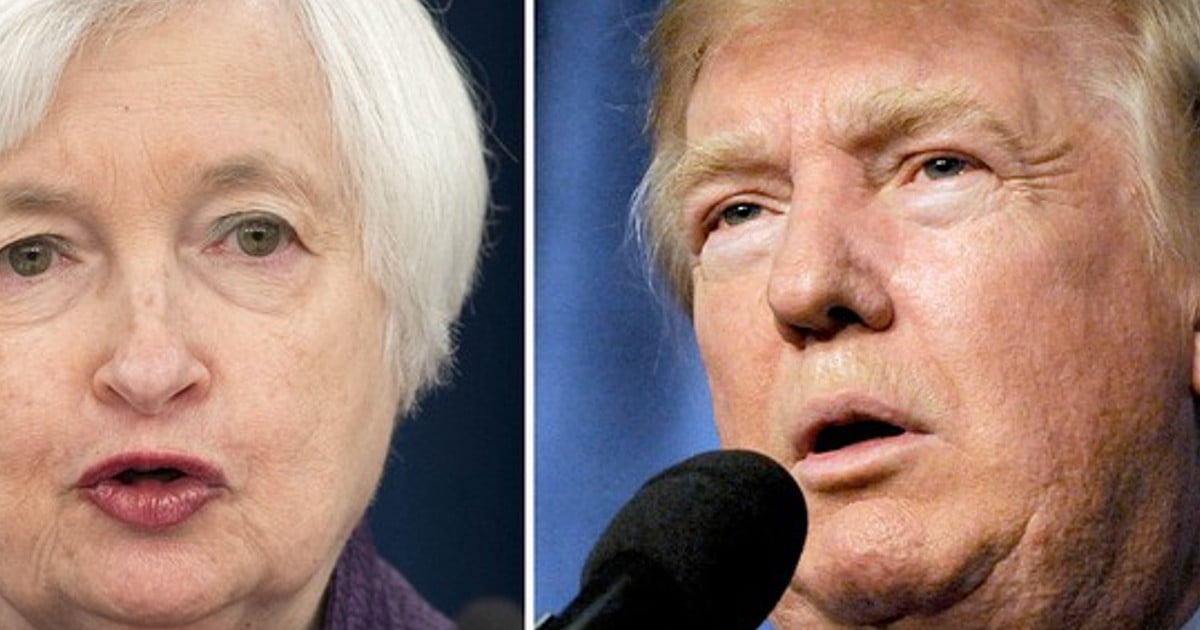The days of Republicans favoring “hard-money” stalwarts on the Federal Reserve fighting to stamp out any sign of inflation was almost dead when Donald Trump took office, but now the president is administering the coup de grace.
The White House on Monday nominated a pair of mainstream conservatives, Richard Clarida and Michelle Bowman, to join the Federal Reserve in senior positions. They would become part of the board that sets U.S. interest rates and determines the cost of borrowing for millions of households and businesses.
Clarida and Bowman are both well respected Republicans, but neither is seen as someone who would push hard for higher interest rates at a time when inflation, even after a recent upward shift, remains unusually low by historical standards.
If confirmed they would take their side by Chairman Jerome Powell, a pragmatic Wall Street veteran who was Trump’s choice to run the Fed. Clarida, a Columbia University professor, would become his second in command.
In perhaps a defining moment in his first press conference, Powell said he’s trying to find the “middle ground” on interest rates. He wants to raise rates just enough to keep inflation contained, but not act so aggressively that higher rates damage the U.S. economy.
The Fed is undergoing the biggest makeover in years under Trump. The president could have gone a more hawkish route and restored inflation fighting as the Fed’s central aim. But he apparently has chosen not to.
Clarida and Bowman, a banking regulator in Kansas and ex-aide to Sen. Bob Dole, could be considered middle grounders. They are by no means “doves” on inflation, but they probably won’t be as aggressive as other candidates Trump could have selected.
Early on he considered John Taylor — supposedly a favorite of Vice President Mike Pence — for the top Fed job. The Stanford economist is famous for the Taylor rule that aims to give the central bank clear signals on when to alter interest rates, but his approach might have forced the Fed to raise rates early in the U.S. recovery when the economy was still quite fragile.
Trump did end up nominating another hawkish candidate, Marvin Goodfriend, for a spot on the Fed board. Yet Goodfriend’s nomination has been held up in the Senate due to opposition from Sen. Rand Paul, a libertarian Republican, and from Democrats critical of Goodfriend’s focus on inflation.
More glaringly, no other Republicans have strongly gone to bat for him. Trump has generally been quiet, too.
The approach by Trump to the Fed marks a sharp departure from his criticism in the 2016 campaign.
Before he became president Trump accused former Chairwoman Janet Yellen, a Democrat, of keeping interest rates low to help then-President Barack Obama and his would-be successor, Hillary Clinton. Trump also complained that artificially low rates were inflating stock prices and hurting savers and elderly people on fixed incomes.
And now? Trump is starting to worry the Fed will raise interest rates too quickly, hurt stock prices and possibly slow the economy just as he gets ready to run for reelection in 2020.
Russia and China are playing the Currency Devaluation game as the U.S. keeps raising interest rates. Not acceptable!
— Donald J. Trump (@realDonaldTrump) April 16, 2018
Earlier this month, Trump economic adviser Peter Navarro said he was “puzzled” by the Fed’s plans to raise U.S. interest rates at least three times this year. He contended inflation was all but invisible and that Trump’s stimulative economic policies would keep it that way, a view not shared by most independent economists.
Navarro has Trump’s ear now. And it’s clear the president has been listening.
Surce:marketwatch.com
Read more trump news in our President Trump category on following link

